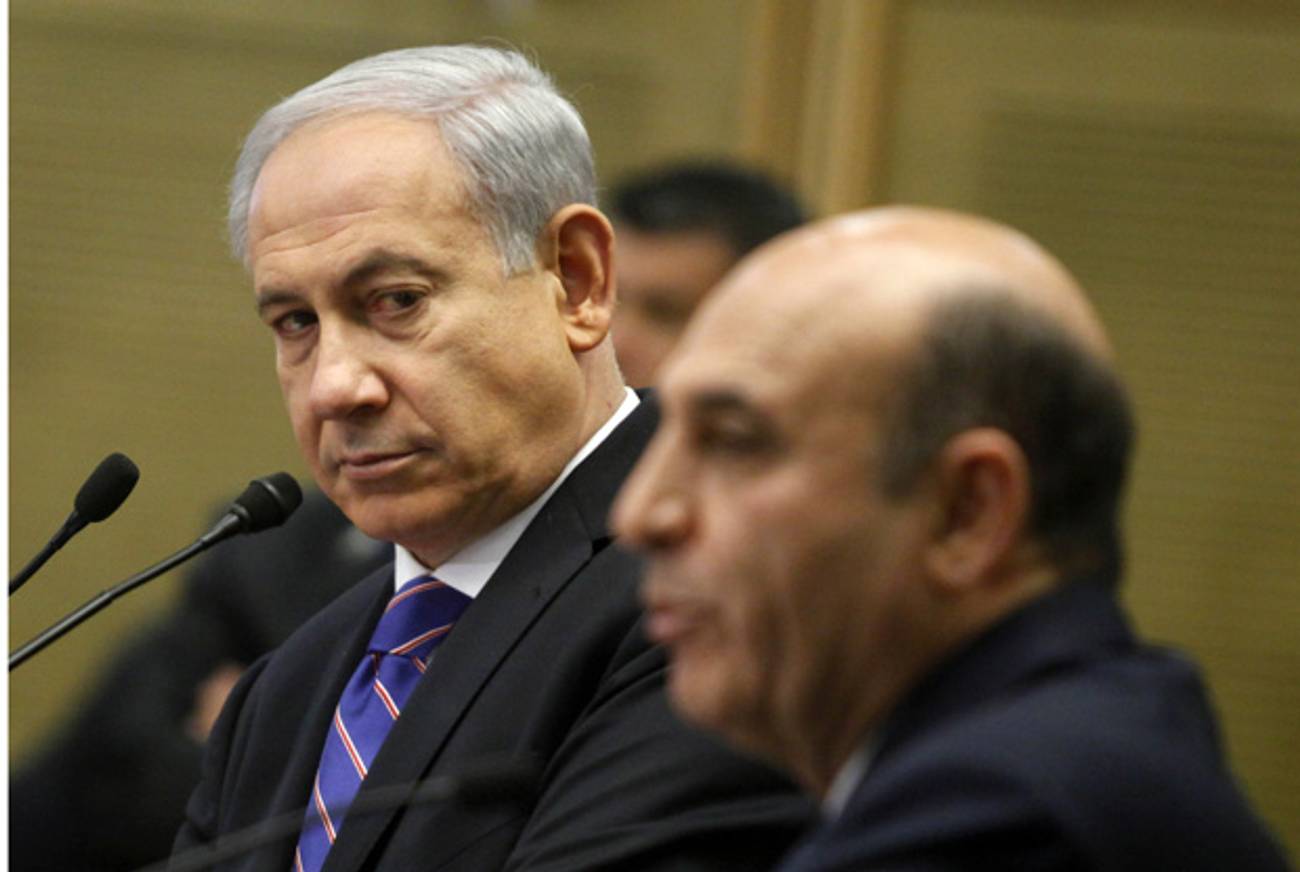Is The New Unity Government Bold or Craven?
It could be 1967; more ominously, it could be 1984




In his analysis today in Tablet Magazine, prominent Israeli historian Benny Morris finds parallels between the recently announced national unity government involving Prime Minister Netanyahu and Shaul Mofaz and the national unity government that was formed in 1967, just a few days before the Six Day War.
“Back then,” Morris writes, “a left-wing government, led by Labor Prime Minister Levi Eshkol, was joined under popular pressure by right-wing parties (Menachem Begin’s Herut and Moshe Dayan’s Rafi) to present a united front mere days before Israel, on June 5, launched its devastating preemptive strike against Egypt. … Today Israel faces the threat of a nuclear Iran—and the prospect of attacking Iranian nuclear facilities without a green light from Washington.”
It’s a fascinating analogy, but there’s one more historical example we should keep in mind: Israel’s second national unity government.
In the fall of 1984, Israelis went to the ballots and placed the two largest parties at the time, Labor and Likud, neck-in-neck, with Labor winning 44 seats and Likud 41. President Chaim Herzog instructed Labor’s leader, Shimon Peres, to try to put together a coalition. Peres (today Israel’s president) failed to attract the religious parties to his cabinet, and had no choice but to return his mandate to the president. Unclear on how to resolve the situation, Herzog took the unprecedented step of himself brokering talks between Peres and Likud’s Yitzhak Shamir, eventually arriving at a Solomonic solution: the government’s four-year term would be cut in half, with Peres serving as prime minister for the first two years and Shamir succeeding him for the final two. This became known as the Rotation; the 21st government, sworn in on September 13, 1984, enjoyed the support of a staggering 104 members of Knesset.
The Rotation government proved to be no way to run a country. Under both leaders, it was cautious to the point of paralysis, largely failed to curb raging inflation, and ordered the establishment of the South Lebanon Security Zone—which was eventually evacuated in 2000 having achieved little of merit and cost hundreds of Israeli and Lebanese lives. But the Rotation government set an important precedent, proving that when, as now, the political system is interested in preserving the status quo, creating all-encompassing coalitions is a potent way of guaranteeing consensus for extended periods of time.
In Israel, where the past always informs the future, the question is what Netanyahu has in mind. It’s possible that he’s taking a page from Eshkol, and sees the addition of Mofaz as a necessary step before an inevitable strike on Iran. But it’s also possible that he’s pulling a Peres, and paying a small political price for great peace of mind.
Related: 1967 All Over Again?
Liel Leibovitz is editor-at-large for Tablet Magazine and a host of its weekly culture podcast Unorthodox and daily Talmud podcast Take One. He is the editor of Zionism: The Tablet Guide.